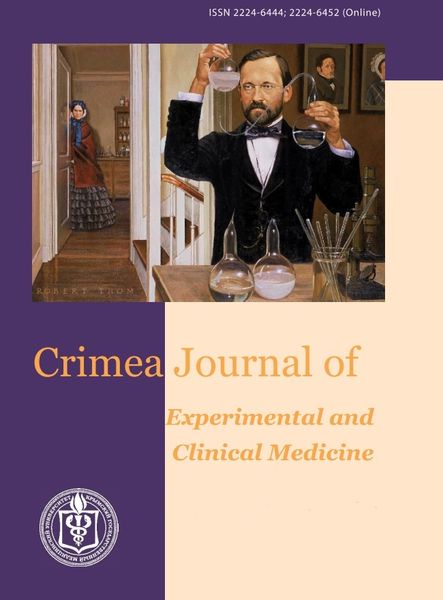One of the most pressing public health issues of our time is vitamin D insufficiency during pregnancy, as it is a major factor in programming foetal development with subsequent risk of disease in childhood and adulthood. Eating disorders in several generations of a family indicate the magnitude of the problem of vitamin D insufficiency, the solution to which is necessary to promote health and improve the quality of life of the population. The aim was to analyse changes in biochemical and calcium-regulating markers of mineral metabolism during critical periods of postnatal development in three generations of laboratory animals, as a function of the level of vitamin D supply. Material and methods. A total of 255 experimental animals were used in the study. In the first phase, 24 mature female Wistar rats were modelled with hypovitaminosis D and randomly divided into two subgroups after mating: Subgroup 1 - without vitamin D supplementation (n=12), Subgroup 2 - with vitamin D supplementation at 500 IU per day (n=12). 12 parity laboratory animals were selected as controls. The results of the study showed that hypocalcaemia and hypophosphatemia were observed in vitamin D-deficient experimental animals, with a significant increase in serum parathyroid hormone concentration - on average 5.5 times (p<0.001) and an increase in alkaline phosphatase activity - on average 1.6 times (p<0.001) compared to the group with normal vitamin D supply. These changes were most pronounced during periods of active growth and lactation. Conclusion. The data obtained indicate the importance of adequate vitamin D intake, which suggests the need for further study of the pathogenetic and biochemical basis of the dose-dependent effect of applied vitamin D from the point of view of the health of future generations.
hypovitaminosis D, mineral metabolism, calcium-regulating markers, laboratory animals, critical periods of postnatal ontogenesis, vitamin D supplementation
1. Gromova O. A. Vitamin D i ego sinergisty. Consilium medicum. Pediatric (Suppl.). 2015;1:1419.
2. Mal'cev S. V., Mansurova G. Sh. Vitamin D: novoe vremya, novyy vzglyad. Pediatriya im. G.N. Speranskogo. 2020;99(4):195-200 doihttps://doi.org/10.24110/0031-403X-2020-99-4-195-200
3. Fomin S. A., Aleksandrovich Yu. S., Kurnikova I. A., Pshenisnov K. V., Fomin A. M., Aleksandrovich I. V. Koncentraciya kal'cifedola v plazme krovi kak marker deficita vitamina D u novorozhdennyh
4. Rol' vitamina D v formirovanii zdorov'ya rebenka. Nacional'naya programma po obespechennosti vitaminom D. Obzor simpoziuma. Eksperty: Gromova O. A., Mal'cev S. V., Zaharova I .N., Namazova-Baranova
5. Zaharova I. N., Klimov L. Ya., Kur'yaninova V. A., Dolbnya S. V., Maykova I. D., Kas'yanova A. N., Anisimov G. S., Bobryshev D. V., Evseeva E. A. Obespechennost' vitaminom D detey grudnogo vozrasta. Rossiyskiy
6. Kozlovskiy A. A., Kozlovskiy D. A. Regional'nye osobennosti soderzhaniya vitamina D v organizme novorozhdennyh i detey pervogo goda zhizni. Problemy zdorov'ya i ekologii 2023;20(3):61
7. Sharipov R. H., Mavlyanova Z. F., Ashurov R. F., Mavlyanov S. F., Shamsiddinova M. Sh. Sovremennyy vzglyad na problemu vliyaniya vitamina D na zdorov'e zhenschin i detey. Research Journal of Trauma and Disability
8. Chacham S., Rajput S., Gurnurkar S., Mirza A., Saxena V., Dakshinamurthy S., Chaturvedi J., Goyal J. P., Chegondi M. Prevalence of Vitamin D Deficiency Among Infants in Northern India: A Hospital Based Prospective Study.
9. Matejek T., Zemankova J., Malakova J., Cermakova E., Skalova S., Palicka V. Severe Vitamin D Deficiency in Preterm Infants: Possibly no Association with Clinical Outcomes? J. Matern. Fetal. Neonatal. Med. 2022;35(8)
10. Rukovodstvo po provedeniyu doklinicheskih issledovaniy lekarstvennyh sredstv. Pod red. Mironova A. N. M.: Izdatel'stvo Grif i K.; 2012.
11. Bondar' T. P., Svetlickiy K. S., Svetlickaya Yu. S., Aseeva O. A. Ocenka biohimicheskih pokazateley potomstva samok krys, v razlichnye vozrastnye periody, poluchavshih vysokobelkovyy, obogaschennyy
12. Abrams S. A. Vitamin D in Preterm and FullTerm Infants. Ann Nutr Metab. 2020;76(2):6-14. doihttps://doi.org/10.1159/000508421.





